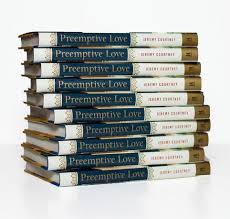If you got this via email, please click on the title to view this more nicely at the website.
Thanks for caring about Hearts & Minds, a cluttered, book-loving, indie, brick-and-mortar retail store with a handful of friendly staff in Dallastown, PA. We are glad for your on-line business and hope you are happy that this BookNotes blog ends up in your inbox (if you have subscribed, that is. Please do if you haven’t.)
We continually get new items in, and only a few get listed here. We wish we could convey our enthusiasm for these wonderful resources that fill our shop. For now, here’s a quick look at a handful.
We do hope that if you find something of interest here that you will send the orders our way. That’s only fair, eh? We’re at your service and remain very, very grateful. Happy reading.
Mercy & Melons: Praying the Alphabet: Thanking God for All Good Gifts from A to Z Lisa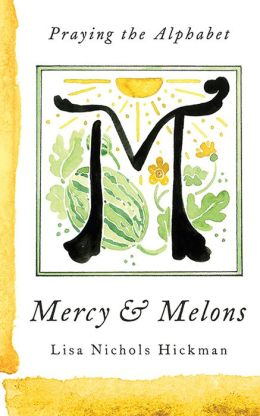 Nichols Hickman (Abingdon) $15.99 You may recall how we raved and promoted Lisa Hickman’s earlier book Writing in the Margins: Connecting with God on the Pages of Your Bible (Abingdon; $16.99)(for which I had the great privilege of penning the forward, by the way.) We knew she was a colorful writer and a good, if a bit unconventional, artisan of generative Bible study, but I was still unexpected for the wonderfully creative lines that flow from her pen, here. Yes, the very “praying the alphabet” format, and the lovely design itself, are fantastic, a rare idea and beautiful execution that is almost certainly not duplicated elsewhere. But the writing — what a joy to behold! Wow.
Nichols Hickman (Abingdon) $15.99 You may recall how we raved and promoted Lisa Hickman’s earlier book Writing in the Margins: Connecting with God on the Pages of Your Bible (Abingdon; $16.99)(for which I had the great privilege of penning the forward, by the way.) We knew she was a colorful writer and a good, if a bit unconventional, artisan of generative Bible study, but I was still unexpected for the wonderfully creative lines that flow from her pen, here. Yes, the very “praying the alphabet” format, and the lovely design itself, are fantastic, a rare idea and beautiful execution that is almost certainly not duplicated elsewhere. But the writing — what a joy to behold! Wow.
I haven’t been going through it A to Z, actually, but dipping in at my heart’s content, and the serendipity has been wonderful. Hickman weaves together in each devotional essay a theological theme and a more mundane topic, although in her hands, the sacred and seemingly secular are not at odds, making it sometimes hard to tell which topic is supposed to be the theological one. She writes about “Down Comforters and Doubt” and “Grasshoppers and Glory” and “Imagination and Icicles” and “Justice and Jello.” Z is a wonderful entry — “Zin and Zinnias” (do you know where Zin is in the Bible?) Her prose about the ordinary stuff of life is fantastic, and her linking these topics/items with theological themes or phrases is just brilliant. I could tell you which I’ve most loved most so far, but you will have to discover these yourself. If you like things that come together, clever word-play, connecting the cosmic dots, you will love this. “Soap and Sanctification” as a guide to prayer? Indeed.
Rev. Lisa Nichols Hickman is an adjunct teacher in the Religion Department at Westminster College and is a pastor at new Wilmington Presbyterian Church. She writes regularly for Faith and Leadership on line magazine, as well as its “Call and Response” blog. If you are drawn to this, you should buy two copies of Mercy & Melons, one for yourself, and another one which you will surely want to share almost as soon as you start reading it.
Dwell: Life With God for the World Barry D. Jones (IVP/Forge) $16.00 This certainly deserves a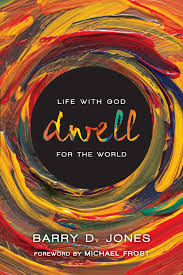 longer review than I want to give it here, and I am confident that it will be receiving a Hearts & Minds year’s end “Best Book of 2014” award — it is certainly that good. And that important. With a great foreword by Michael Frost, this wonder book makes the case that with all of our talk about being missional, we are often missing the need for being intentional about our inner formation (or, conversely, with those who are most interested about our interior lives and spirituality, often unhinge these from the missional project of God’s redemptive work in the world.) So we often get it wrong, imbalanced at best. This is age old stuff — I’ve written before about my own fascination with authors like Thomas Merton and Parker Palmer who have written profoundly about the relationship between what Betty O’Connor used to call “the journey inward and the journey outward.” Yes, Psalm 24:1 reminds us that all of the Earth is the Lord’s and the “fullness thereof.” This implies that God shows up everywhere, and that our redemption is — as the popular Acton Institute DVD puts it For the Life of the World. This is a book that made me think about holy worldiness, about incarnational spirituality, about mystical earthiness, about what another author calls “missional spirituality.” It is so, so good!
longer review than I want to give it here, and I am confident that it will be receiving a Hearts & Minds year’s end “Best Book of 2014” award — it is certainly that good. And that important. With a great foreword by Michael Frost, this wonder book makes the case that with all of our talk about being missional, we are often missing the need for being intentional about our inner formation (or, conversely, with those who are most interested about our interior lives and spirituality, often unhinge these from the missional project of God’s redemptive work in the world.) So we often get it wrong, imbalanced at best. This is age old stuff — I’ve written before about my own fascination with authors like Thomas Merton and Parker Palmer who have written profoundly about the relationship between what Betty O’Connor used to call “the journey inward and the journey outward.” Yes, Psalm 24:1 reminds us that all of the Earth is the Lord’s and the “fullness thereof.” This implies that God shows up everywhere, and that our redemption is — as the popular Acton Institute DVD puts it For the Life of the World. This is a book that made me think about holy worldiness, about incarnational spirituality, about mystical earthiness, about what another author calls “missional spirituality.” It is so, so good!
That FLOW DVD, by the way, has become our biggest selling item of the year! This Dwell book is a fantastic follow up, inviting us to “dwell” as we incarnate the ways of God in God’s world. It is very well written, offers fresh insights and important wisdom about the nexus of living with God, in the world, with creative, valuable content. Perhaps soon I will outline the ten great chapters, beautiful, good stuff, but for now, please know this is a wonderful book about spirituality, Christian living, Kingdom vision, and how we can incarnate in stories, practices and disciplines “an approach to Christian formation and discipleship that doesn’t neglect our individual person-hood but sets it in a missional context.” Not either/or but both/and, and that doesn’t even do this justice. Hooray.
Stories We Tell: How TV and Movies Long for and Echo the Truth Mike Cosper – foreword by Tim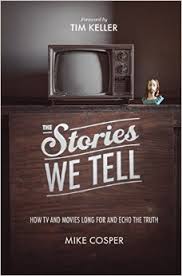 Keller (Crossway) $15.99 I will be brief: I adored this book, so enjoyed it, thought it was one of the very best books exploring pop culture that I’ve read in a long while. Some (like the must read Eyes Wide Open: Looking for God in Popular Culture by William D. Romanowski) are broad and lay the Biblical basis for thinking faithfully about the popular arts. Others examine certain films or trends within pop culture — I hope you know David Dark’s extraordinary Everyday Apocalypse: The Sacred Revealed in Radiohead, the Simpsons, and Other Pop Culture Icons which is my favorite example of this.) This new one, though, Stories We Tell, has an exceptionally clear and well balanced framework, is both pious and open-minded, celebrating the imagination God has given us and our disposition to tell and enjoy stories. Ponder the subtitle a bit — this so rich. But it also spends most of its time looking at TV shows, past and present, and is as up to date as any book like this, including some ruminations on current reality shows. The cover — that retro look with an old TV and a cheesy Jesus statue — is maybe supposed to appeal to the hip or ironic, but please know that this is a truly earnest, insightful, joy-filled and very helpful book that is very current. Given how much time people spend watching TV and movies, I think this is a very important resource to have around.
Keller (Crossway) $15.99 I will be brief: I adored this book, so enjoyed it, thought it was one of the very best books exploring pop culture that I’ve read in a long while. Some (like the must read Eyes Wide Open: Looking for God in Popular Culture by William D. Romanowski) are broad and lay the Biblical basis for thinking faithfully about the popular arts. Others examine certain films or trends within pop culture — I hope you know David Dark’s extraordinary Everyday Apocalypse: The Sacred Revealed in Radiohead, the Simpsons, and Other Pop Culture Icons which is my favorite example of this.) This new one, though, Stories We Tell, has an exceptionally clear and well balanced framework, is both pious and open-minded, celebrating the imagination God has given us and our disposition to tell and enjoy stories. Ponder the subtitle a bit — this so rich. But it also spends most of its time looking at TV shows, past and present, and is as up to date as any book like this, including some ruminations on current reality shows. The cover — that retro look with an old TV and a cheesy Jesus statue — is maybe supposed to appeal to the hip or ironic, but please know that this is a truly earnest, insightful, joy-filled and very helpful book that is very current. Given how much time people spend watching TV and movies, I think this is a very important resource to have around.
Mike Cosper has already given us a fantastic book on worship (Rhythms of Grace: How the Church’s Worship Tells the Story of the Gospel) which shows his familiarity with narrative theology — the short-hand of talking about creation/fall/redemption/restoration — which also reveals how he enjoys pop music and the arts. His love for TV and movies is truly evident here, which is part of the goodness of this book. He not only gets the broad, worldview-ish critical engagement piece, but he enjoys the stories that come at us, the higher-powered more intellectual ones and lower-brow, silly stuff, too. Author Karen Swallow Prior (whose own thoughtful memoir about reading called Booked is a personal fav) calls it charitable, wise, and generous. Yes it is! You should read this book! You should give it to anybody you know who likes TV and film, or anybody who really has a bone to pick with the artists in pop culture. His gospel-centered grid, his good, Biblical wisdom, and his passion for stories makes him a great author for this vital topic.
S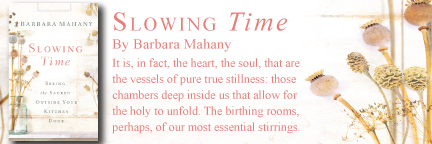 lowing Time: Seeing the Sacred Outside Your Kitchen Door Barbara Mahany (Abingdon) $15.99 The important industry journal Publishers Weekly said this was one of the top 10 books of the fall (in the “religion” category) and that made me eager to see it. Abingdon has been doing some very lush, well-written, interesting books of late (think of Debbie Blue’s breathtaking Birds of the Bible or the two books, mentioned above, by Lisa Nichols Hickman, or the wonderfully little book on prayer called The Book of Not So Common Prayer by Linda McCullough Moore; I think editor Lil Copan and wordsmith Lauren Winner have something to do this glorious output.)
lowing Time: Seeing the Sacred Outside Your Kitchen Door Barbara Mahany (Abingdon) $15.99 The important industry journal Publishers Weekly said this was one of the top 10 books of the fall (in the “religion” category) and that made me eager to see it. Abingdon has been doing some very lush, well-written, interesting books of late (think of Debbie Blue’s breathtaking Birds of the Bible or the two books, mentioned above, by Lisa Nichols Hickman, or the wonderfully little book on prayer called The Book of Not So Common Prayer by Linda McCullough Moore; I think editor Lil Copan and wordsmith Lauren Winner have something to do this glorious output.)
Anyway, this is truly an original work, offering litanies and prayers, poems and observations, essays and recipes, reflection ideas and action steps (and even some lines in italics running along the bottom edge of the back, a curious design feature) all nicely arranged by the season of the year. This really is a book one can live with through a year. Barbara Mahany is a devout Catholic, a very good writer, with a large capacity, it seems, to see stuff; to attend. Rabbi Evan Moffic says, that she “writes with the eyes of a sculptor and the ear of a poet.” Mahany has been a writer for the Chicago Tribune — often talking about her family and their making a way in the world that is sane and good — and this shows her journalistic chops quite nicely. “Bracingly honest and heart-achingly daring, she explores the sacred mysteries with a voice that is recognizable and clear.” Slow down, realize the beauty and wonder of the ordinary, take heart. This is “balm for the hurried heart.” And it has seasonal recipes!
From Every Tribe and Nation: A Historian’s Discovery of the Global Christian Story Mark A. Noll 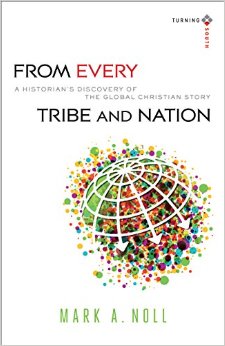 (Baker Academic) $19.99 I have raved about this unfolding series of books before; this new one is the third in the “Turning South” series, which tells the stories of “Christian scholars in an age of world Christianity.” First up was Journey Towards Justice, the fabulous memoir/argument by Nicholas Wolterstorff who told passionately of how he came to take up his work as a political philosopher, inspired by meeting suffering Christians in Palestine and South Africa. Next was Reading a Different Story: A Christian Scholar’s Journey from America to Africa a wonderful, slim book by literature professor Susan VanZanten who wrote wonderfully about her coming to appreciate the stories of the developing world. This new one shows how this leading historian, by offering his own personal account, has come to do his work, and particularly his recent work on the global Christian story. Rave, rave, reviews grace the back, from Richard Mouw, George Marsden, Philip Jenkins and Robert Louis Wilken. Who knew that Noll was such a good storyteller — he tells of his own boyhood growing up Baptist in Cedar Rapids, Iowa, his early love of baseball, and, now, to his groundbreaking work on global faith.
(Baker Academic) $19.99 I have raved about this unfolding series of books before; this new one is the third in the “Turning South” series, which tells the stories of “Christian scholars in an age of world Christianity.” First up was Journey Towards Justice, the fabulous memoir/argument by Nicholas Wolterstorff who told passionately of how he came to take up his work as a political philosopher, inspired by meeting suffering Christians in Palestine and South Africa. Next was Reading a Different Story: A Christian Scholar’s Journey from America to Africa a wonderful, slim book by literature professor Susan VanZanten who wrote wonderfully about her coming to appreciate the stories of the developing world. This new one shows how this leading historian, by offering his own personal account, has come to do his work, and particularly his recent work on the global Christian story. Rave, rave, reviews grace the back, from Richard Mouw, George Marsden, Philip Jenkins and Robert Louis Wilken. Who knew that Noll was such a good storyteller — he tells of his own boyhood growing up Baptist in Cedar Rapids, Iowa, his early love of baseball, and, now, to his groundbreaking work on global faith.
Philip Jenkins says of it, “Yes, I’m prejudiced. I know that any new book by Mark Noll is undoubtedly a cause for excitement, both for myself and anyone interesting in the history of Christianity. I am especially delighted in From Every Tribe and Nation, which takes the literature on world Christianity to a whole new level.”
True Paradox: How Christianity Makes Sense of Our Complex World David Skeel (IVP/Veritas)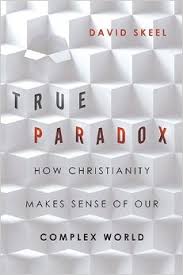 $15.00 I admire this legal scholar, a Presbyterian professor of Corporate law at University of Pennsylvania Law School. (Not too shabby, eh?) who has often engaged in thoughtful forums on campuses, nicely representing Biblical notions of goodness, justice, tolerance, and truth. He’s a very impressive guy.
$15.00 I admire this legal scholar, a Presbyterian professor of Corporate law at University of Pennsylvania Law School. (Not too shabby, eh?) who has often engaged in thoughtful forums on campuses, nicely representing Biblical notions of goodness, justice, tolerance, and truth. He’s a very impressive guy.
I admit, though, that I was afraid this might be rather dense, too detailed, arcane, even. Alas, what a delight — this is an exceptionally well written, clear-headed, yet almost anguished plea to not “dumb down” the questions of meaning and faith, appealing to all sorts of thoughtful readers. Not only does Skeel relish paradoxes, he notes that the complexity of reality is something for which we simply must give an authentic account. And here’s the kicker: both traditional older-school apologetics — defending the truth, making cases that demand verdicts, proving the reliability of the Bible and such — and the outspoken new atheists, each have a view of truth and reality that is, well, finally unrealistic. That is, complexity and paradox are truly part of our experience. Could it be that this itself is a signal of transcendence, that the gospel itself points us towards a vision/story/worldview that helps us live into this curious aspect of our existence?
We need not deny the complexities of life. As it says on the back cover, “they can lead us to the possibility that the existence of God could make sense of it all.” Rave reviews on the back are from evangelical historian Mark Noll, Catholic social and policy activist John J. Dilulio, and a former editorial board member of the New York Times. Winsome, smart, profound, this is a very fine, approach book about life’s biggest mysteries, and how best to respond to our complex world. And thank goodness for this small Veritas Forum imprint of thoughtful books coming from IVP. Kudos!
Lean On Me: Finding Intentional, Vulnerable, and Consistent Community Anne Marie Miller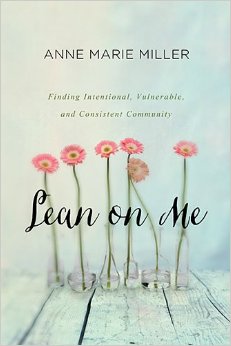 (Nelson) $15.99 Some of us know Anne Marie Miller as the former Anne Jackson, who wrote the funny, fabulous, helpful book on the epidemic of church leader’s burn-out called Mad Church Disease and the engaging, even horrific at times, yet wonderful collection of stories (and art pieces) of things people feel they couldn’t share in church, Permission to Speak Freely: Essays and Art on Fear, Confession, and Grace. This book seems to be the natural follow up to these two, and posits — in her beautiful, winsome, engaging style — that real community is the antidote to burnout and shame, exhaustion and loneliness. In other words, in religious institutions where “mad church disease” is so prevalent, and yet where we are discouraged from talking about our brokenness, fears, or foibles, we simply have to re-doubled our efforts to seek grace-filled, Christ-centered, life-giving friendships. It says on the back cover, “we live in a world and a generation where the world ‘community’ is often discussed. But how genuine and authentic are your relationships, really? Miller noticed an important tension all of us must recognize in order to have life-giving friendships. “We desperately want to belong yet as the same time, we yearn for independence.” Yeah, there’s that. I am very glad that Anne has attempted to tackle this. She’s gonna tell it like it is, I’m sure.
(Nelson) $15.99 Some of us know Anne Marie Miller as the former Anne Jackson, who wrote the funny, fabulous, helpful book on the epidemic of church leader’s burn-out called Mad Church Disease and the engaging, even horrific at times, yet wonderful collection of stories (and art pieces) of things people feel they couldn’t share in church, Permission to Speak Freely: Essays and Art on Fear, Confession, and Grace. This book seems to be the natural follow up to these two, and posits — in her beautiful, winsome, engaging style — that real community is the antidote to burnout and shame, exhaustion and loneliness. In other words, in religious institutions where “mad church disease” is so prevalent, and yet where we are discouraged from talking about our brokenness, fears, or foibles, we simply have to re-doubled our efforts to seek grace-filled, Christ-centered, life-giving friendships. It says on the back cover, “we live in a world and a generation where the world ‘community’ is often discussed. But how genuine and authentic are your relationships, really? Miller noticed an important tension all of us must recognize in order to have life-giving friendships. “We desperately want to belong yet as the same time, we yearn for independence.” Yeah, there’s that. I am very glad that Anne has attempted to tackle this. She’s gonna tell it like it is, I’m sure.
There is little doubt in my mind that “community” is one of the most urgent topics of our day. Living Into Community: Cultivating Practices That Sustain Us by Christine Pohl (Eerdmans; $20.00) is the serious gold standard in this category, but it may be a bit too heady for some to wade through. Life Together (HarperOne; $14.99) by Dietrich Bonhoeffer, written under the threat of Hitler’s Nazi repression, of course, has been a standard go-to book for decades, and remains a Hearts & Minds bestseller –a vital quote from it ends Miller’s good book. Lean on Me: Finding Intentional, Vulnerable, and Consistent Community is a nice starter book on this meaty topic, with a useful reader’s guide at the end making it ideal for book clubs, Sunday school classes, campus Bible study groups, church staff meeting reading, and the like. I believe it will help many deepen their relationships, form more intentional, supportive small groups, and to arrange our lives together in our churches and neighborhoods to be more open and honest about our deep need for others.
Or-di-nar-y Michael Horton (Zondervan) $15.99 This is a wonderful little book, thoughtful, gospel-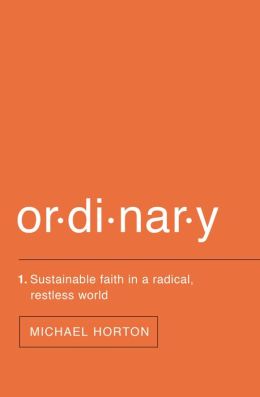 centered, mature. It’s a book decrying the hip new trend of being over-the-top passionate, extraordinary, world-changing, transformational, emerging, missional, big and bold, radical, celebrating instead the rhythms of the ordinary life of discipleship, and the ordinary means of grace. Offering “ordinary and content” in part two instead of “radical and restless” is a useful rubric, and it works well, bringing grace and truth to those of us a bit too hyped up on making a difference. Mark Galli notes that “Horton’s Ordinary is, well, extraordinary.” And indeed, it is. As a confessional Presbyterian, especially, I’m fond of this approach (even though it would be reasonable to worry if such a message might create luke-warm faith or cultural accommodation. Horton does not think so, and I suspect he is right.)
centered, mature. It’s a book decrying the hip new trend of being over-the-top passionate, extraordinary, world-changing, transformational, emerging, missional, big and bold, radical, celebrating instead the rhythms of the ordinary life of discipleship, and the ordinary means of grace. Offering “ordinary and content” in part two instead of “radical and restless” is a useful rubric, and it works well, bringing grace and truth to those of us a bit too hyped up on making a difference. Mark Galli notes that “Horton’s Ordinary is, well, extraordinary.” And indeed, it is. As a confessional Presbyterian, especially, I’m fond of this approach (even though it would be reasonable to worry if such a message might create luke-warm faith or cultural accommodation. Horton does not think so, and I suspect he is right.)
But, okay, let me get this wee little thing off my chest: the orange cover seems meant to evoke Radical: Taking Back Your Faith from the American Dream by David Platt and yet he doesn’t mention it. Gracious of him, perhaps, but the cover sort of seems to imply something and alluding like this seems a bit snarky. And, the cool dictionary-definition-graphic on the cover, with the word spelled in a nifty eye-catching way (and which shows the definition as “1. Sustainable faith in a radical restless world”) seems a minor capitulation to the hipster marketing thing that drives so much of the “we can change the world” schtick pop evangelicalism. I suppose it doesn’t matter much, but wanted to share this minor observation that even in the packaging of this book, the good marketing team had to give it some minimalist zip. Which is to say, I guess, that ordinary need not mean bland or boring or routine.
More importantly, this is a wonderful reminder of what it means to be faithful and mature, not gunning for unrealistic expectations and setting ourselves up for disillusionment. That he brings older faith traditions to bear is commendable and good (and, for what it is worth, for the few people who notice such things, he cites Mercersberg’s Nevin against revivalist Finney, draws on Jamie Smith, and seems to agree much with Kendra Creasy Dean who worries about congregations not teaching their youth.
I especially recommend Horton’s Or-di-nar-y to those whose faith seems to be a little faddish or those whose faith seems over-the-top emotionall without corresponding inner growth and time spent in the local church; also, I think it would be very useful for more mainline pastors or leaders who have long called for less sensational faith expressions in favor of the low-key long haul, but maybe need to understand the (newer) radical evangelicalism of our day. By the way, after Horton’s compelling treatment, recall how we’ve promoted the sleeper of a little book called The God of the Mundane: Reflections on Ordinary Life for Ordinary People by Matthew B. Redmond (Kalos Press; $10.95) which I liked very, very much.
The Romantic Rationalist: God, Life, and Imagination in the World of C.S. Lewis edited by John
Louis Markos says that this “paints a well-rounded, sharply observed portrait that balances criticism with a deep love and appreciation for the works and witness of Lewis.” Michael Ward calls it “altogether an interesting, lively and thought-provoking read.” With authors like Piper, Philip Ryken, Douglas Wilson, Kevin Vanhoozer, and Randy Alcorn. you can be assured this is thoughtful, evangelical, insightful.
Alcorn, for instance, is trying to show how Lewis’ view of the new creation — this world renewed, like a paradise restored — is similar to Al Wolter’s in Creation Regained and I suspect I will return to it often. (Piper has a similiar chapter, too, about the sanctification of the things of earth, drawing on CS and St Paul.) One chapter explores Lewis’ view of the Scriptures, another part explores his view of hell, another draws on his use of the imagination, suggesting its importance for ongoing theological work. Throughout there is this sense of he was both romanticist and rationalist (oh yes!) I hope you read Lewis, and about Lewis, a bit each year.
I like the title, don’t you?
C.S. Lewis and the Crisis of a Christian Gregory S. Cootsona (Westminster/John Knox) $16.00
Lewis biographer James Como exclaims that “Greg Cootsona’s book is as distinctive a contribution to writing on Lewis as any I know. With no claim toward breaking new ground, the author nevertheless brings a perspective so fresh that even a veteran reader of the master will be instructed…”
Mark Labberton of Fuller Theological Seminary says “Greg Cootsona’s treatment of C.S. Lewis reflects the passion and thoroughness of a devotee who savors the insights of a long-term mentor. He relishes handing on morsels of Lewis’s imagination and insight, while he also analyzes and measures Lewis’s enduring value. Reading this book will enhance your experience of the feast that is C.S. Lewis but will also fortify the heard and imagination for the “crisis” that all true faith must engage.”
BookNotes
DISCOUNT
ANY ITEM MENTIONED
20% off
order here
takes you to the secure Hearts & Minds order form page
just tell us what you want
inquire here
if you have questions or need more information
just ask us what you want to know
Hearts & Minds 234 East Main Street Dallastown, PA 17313 717-246-3333

 new and I’ve only skimmed them, enough to say that they all deserve more then pith, even more than brevity. I’m too busy, though, for much more, now, but these are so good, I just had to tell you that we have them here in stock, on sale for BookNotes readers.
new and I’ve only skimmed them, enough to say that they all deserve more then pith, even more than brevity. I’m too busy, though, for much more, now, but these are so good, I just had to tell you that we have them here in stock, on sale for BookNotes readers. 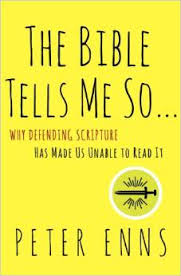 he Bible Tells Me So: Why Defending Scripture Has Made Us Unable to Read it Peter Enns (HarperOne) $25.99 Not too many professional Bible scholars have such deep history in places like an evangelical Christian college and Westminster Theological Seminary, where Enns was edged out having taught there for 14 years, as well as the more mainstream Jewish and liberal Protestant scholars at Harvard Divinity School where he was profoundly tutored about what to do “when the Bible doesn’t behave.” And none are as witty and entertaining as Enns as he walks us through the Bible’s big problems (Canaanite genocide, just for instance) and how to best understand them all. Rachel Held Evans says it is a “game-changer” and Brian McLaren says it is “super-enjoyable, highly informative, disarmingly honest, and downright liberating.” Tony Campolo writes, “I, as an old-fashioned evangelical have some problems with what he has written, I think that many other readers will find answers to some of the most perplexing questions that they have about the Bible.”
he Bible Tells Me So: Why Defending Scripture Has Made Us Unable to Read it Peter Enns (HarperOne) $25.99 Not too many professional Bible scholars have such deep history in places like an evangelical Christian college and Westminster Theological Seminary, where Enns was edged out having taught there for 14 years, as well as the more mainstream Jewish and liberal Protestant scholars at Harvard Divinity School where he was profoundly tutored about what to do “when the Bible doesn’t behave.” And none are as witty and entertaining as Enns as he walks us through the Bible’s big problems (Canaanite genocide, just for instance) and how to best understand them all. Rachel Held Evans says it is a “game-changer” and Brian McLaren says it is “super-enjoyable, highly informative, disarmingly honest, and downright liberating.” Tony Campolo writes, “I, as an old-fashioned evangelical have some problems with what he has written, I think that many other readers will find answers to some of the most perplexing questions that they have about the Bible.” 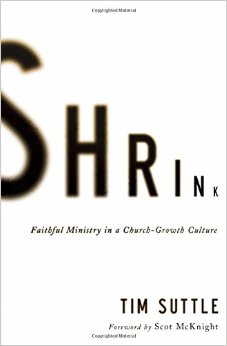 hrink: Faithful Ministry in a Church-Growth Culture Tim Shuttle (Zondervan) $16.99 Listen to what Stanley Hauerwas of Duke says of this brand new book: “Church growth strategies are the death gurgle of a church that has lost its way. Suttle helps us see how God in our time is making us leaner and meaner. I hope this book will be widely read.” Who writes a book blurb like that, wanting us to be “leaner and meaner”? Ha! Intriguing, eh?
hrink: Faithful Ministry in a Church-Growth Culture Tim Shuttle (Zondervan) $16.99 Listen to what Stanley Hauerwas of Duke says of this brand new book: “Church growth strategies are the death gurgle of a church that has lost its way. Suttle helps us see how God in our time is making us leaner and meaner. I hope this book will be widely read.” Who writes a book blurb like that, wanting us to be “leaner and meaner”? Ha! Intriguing, eh? 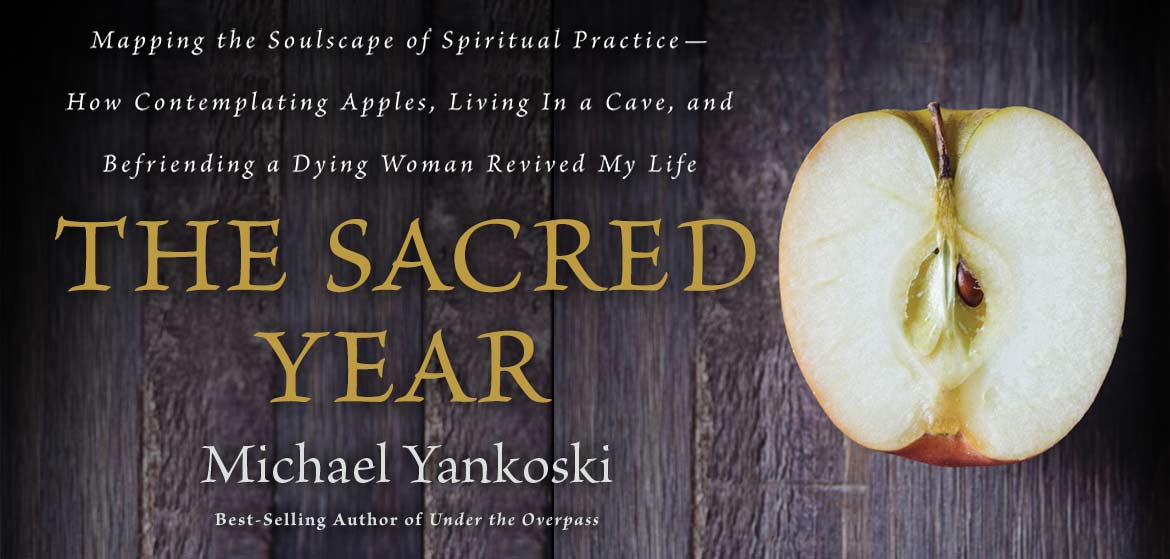 he Sacred Year Michael Yankoski (Nelson) $15.99 All right, I’ll admit it, I was drawn to this because of the cover. Yankoski is an energetic speaker and his book about living with the homeless — Under the Overpass — is fantastic: clear, passionate and inspiring. He received his MA at Regent in British Columbia and is a novitiate Oblate of St. Benedict, which is pretty cool. Here is what it says on the lovely front cover: “Mapping the Soulscape of Spiritual Practice — How Contemplating Apples, Living in a Cave, and Befriending a Dying Woman Revived my Life.”
he Sacred Year Michael Yankoski (Nelson) $15.99 All right, I’ll admit it, I was drawn to this because of the cover. Yankoski is an energetic speaker and his book about living with the homeless — Under the Overpass — is fantastic: clear, passionate and inspiring. He received his MA at Regent in British Columbia and is a novitiate Oblate of St. Benedict, which is pretty cool. Here is what it says on the lovely front cover: “Mapping the Soulscape of Spiritual Practice — How Contemplating Apples, Living in a Cave, and Befriending a Dying Woman Revived my Life.”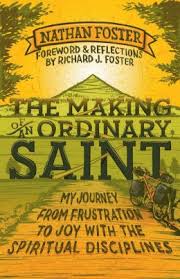 he Making of An Ordinary Saint: My Journey From Frustration to Joy with the Spiritual Disciplines Nathan Foster (Baker) $14.99 We know Nathan is a storyteller — he wrote a captivating, raw book about the growing distance he felt from his famous father (Richard Foster) and the subsequent disillusionment about Christianity he faced as a troubled young adult, and how he wisely challenged his dad to hike a bunch of Colorado mountains with him, in a last-ditch effort to restore their relationship. (That was the very nice Wisdom Chaser: Finding My Father at 14,000 Feet.) I heard the two of them do a splendid, entertaining tag-team talk at the Calvin College Festival of Faith and Writing last spring, and have been waiting for this book ever since. In a way, this is a second generation Celebration of Discipline as the hip, young son tells of his own frustrations (and restorative glories) of practicing the classic spiritual disciplines. Ruth Haley Barton says it is “Delightful…. simply delightful” and Eugene Peterson says “Read this book and find yourself a new companion as you follow Jesus.” Yeah, that’s it. He is a honest, ordinary, reliable companion. Richard Forster, by the way, offers a nice foreword and good reflections throughout.
he Making of An Ordinary Saint: My Journey From Frustration to Joy with the Spiritual Disciplines Nathan Foster (Baker) $14.99 We know Nathan is a storyteller — he wrote a captivating, raw book about the growing distance he felt from his famous father (Richard Foster) and the subsequent disillusionment about Christianity he faced as a troubled young adult, and how he wisely challenged his dad to hike a bunch of Colorado mountains with him, in a last-ditch effort to restore their relationship. (That was the very nice Wisdom Chaser: Finding My Father at 14,000 Feet.) I heard the two of them do a splendid, entertaining tag-team talk at the Calvin College Festival of Faith and Writing last spring, and have been waiting for this book ever since. In a way, this is a second generation Celebration of Discipline as the hip, young son tells of his own frustrations (and restorative glories) of practicing the classic spiritual disciplines. Ruth Haley Barton says it is “Delightful…. simply delightful” and Eugene Peterson says “Read this book and find yourself a new companion as you follow Jesus.” Yeah, that’s it. He is a honest, ordinary, reliable companion. Richard Forster, by the way, offers a nice foreword and good reflections throughout. 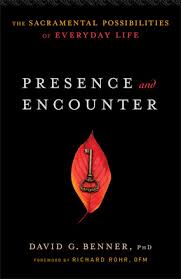 resence and Encounter: The Sacramental Possibilities of Everyday Life David G. Benner (Foreword by Richard Rohr) (Brazos Press) $15.99 I am really drawn to these kinds of books, about the spirituality of the ordinary, the mystical embedded in the mundane, practicing the presence of God and so forth. Some are truly luminous, beautifully done and so very helpful. I am sure that this book — inspired by the author’s early confrontation with the “I-Thou” worldview of Jewish philosopher Martin Buber — will help us realize that attentive presence is what allows for real encounters to occur. As it says in the advanced promo: “Drawing on over thirty-five years of experience integrating psychology and spirituality, Benner examines the transformational possibilities of spiritual presence and encounter in fresh, exciting, and practical ways.” There are end-of-chapter reflection exercises for individuals or groups, and these are profound and experiential (that is, not just discussion-based study questions.) This is a bit deep, and may be important for those longing for greater discernment about God’s presence in their daily lives.
resence and Encounter: The Sacramental Possibilities of Everyday Life David G. Benner (Foreword by Richard Rohr) (Brazos Press) $15.99 I am really drawn to these kinds of books, about the spirituality of the ordinary, the mystical embedded in the mundane, practicing the presence of God and so forth. Some are truly luminous, beautifully done and so very helpful. I am sure that this book — inspired by the author’s early confrontation with the “I-Thou” worldview of Jewish philosopher Martin Buber — will help us realize that attentive presence is what allows for real encounters to occur. As it says in the advanced promo: “Drawing on over thirty-five years of experience integrating psychology and spirituality, Benner examines the transformational possibilities of spiritual presence and encounter in fresh, exciting, and practical ways.” There are end-of-chapter reflection exercises for individuals or groups, and these are profound and experiential (that is, not just discussion-based study questions.) This is a bit deep, and may be important for those longing for greater discernment about God’s presence in their daily lives. $15.99 I hope you recall how we raved about Shinabarger’s previous book about a more simple — and creatively generous — lifestyle (called More or Less
$15.99 I hope you recall how we raved about Shinabarger’s previous book about a more simple — and creatively generous — lifestyle (called More or Less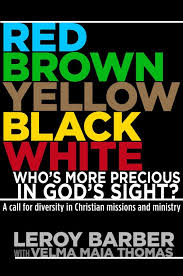 ed Brown Yellow Black White: Who’s More Precious in God’s Sight? A Call for Diversity in Christian Missions and Ministry Leroy Barber with Velma Maia Thomas (Jericho) $26.99 I have been with Leroy on several occasions and just love him — he’s real, funny, dynamic, caring, and a true leader, bringing together folks to care about racial justice, wholistic ministry, urban renewal and more. He told riveting short stories of urban youth and how Mission Year communities work for renewal in their lives and in their neighborhoods in the creative small book,New Neighbor, and then wrote a more general book which I adored called Every Day Missions. (If you haven’t used that in your small group or book club, it works really well.)
ed Brown Yellow Black White: Who’s More Precious in God’s Sight? A Call for Diversity in Christian Missions and Ministry Leroy Barber with Velma Maia Thomas (Jericho) $26.99 I have been with Leroy on several occasions and just love him — he’s real, funny, dynamic, caring, and a true leader, bringing together folks to care about racial justice, wholistic ministry, urban renewal and more. He told riveting short stories of urban youth and how Mission Year communities work for renewal in their lives and in their neighborhoods in the creative small book,New Neighbor, and then wrote a more general book which I adored called Every Day Missions. (If you haven’t used that in your small group or book club, it works really well.) 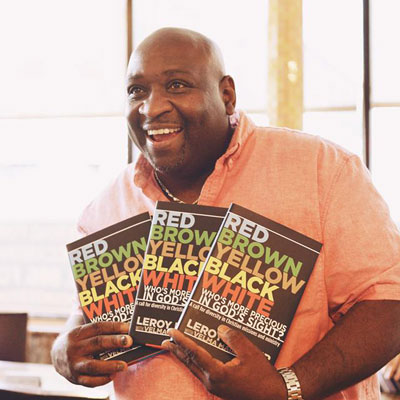 y within US ministries, and the implications of our racial dysfunctions upon who ends up taking up mission projects, domestically and globally. I think this may end up being a much-discussed, very significant book as it brings some things together about multi-cultural diversity and racism and missions that no other book has yet done. If you are in any para-church organization or mission agency, especially, it is simply a must-read — the sooner, the better, too. As Jim Wallis says, “It is the start of a much-needed conversation on diversity in missions leadership from a man who has lived out these ideas in his own life in an exemplary way.” Ground-breaking, yes, but with practical, action-oriented solutions. Let’s spread the word on this so the those who need to grapple with it learn about it.
y within US ministries, and the implications of our racial dysfunctions upon who ends up taking up mission projects, domestically and globally. I think this may end up being a much-discussed, very significant book as it brings some things together about multi-cultural diversity and racism and missions that no other book has yet done. If you are in any para-church organization or mission agency, especially, it is simply a must-read — the sooner, the better, too. As Jim Wallis says, “It is the start of a much-needed conversation on diversity in missions leadership from a man who has lived out these ideas in his own life in an exemplary way.” Ground-breaking, yes, but with practical, action-oriented solutions. Let’s spread the word on this so the those who need to grapple with it learn about it.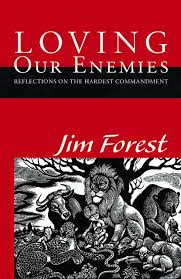 oving Our Enemies: Reflections on the Hardest Commandment Jim Forest (Orbis) $20.00 Those of us who have been involved in peacemaking ministries or anti-war activism know well the name of this author; he was an international leader of Fellowship of Reconciliation, a long-standing, vivid activist and advocate for nonviolent resistance, and wrote what some still think are the best biographies of both Dorothy Day (All Is Grace: A Biography of Dorothy Day) and Thomas Merton (Living with Wisdom: A Life of Thomas Merton.) I met Forest years ago, and admire his courage and depth and ecumenicity. He is now an Orthodox Christian (and has written a few good books on icons, too), living in the Netherlands. I am sure this will be very, very moving, insightful, a mixture of deep spirituality, Biblical study, and a bit of savvy public theology. Rowan Williams says it is “a statement of the gospel challenge and the gospel hope so clear that it is frightening; this is real, this is possible, this cannot be written off…” Even if one isn’t drawn to the bigger social issues of the day, all of us must learn to forgive, after all, and this certainly is a very helpful guide.
oving Our Enemies: Reflections on the Hardest Commandment Jim Forest (Orbis) $20.00 Those of us who have been involved in peacemaking ministries or anti-war activism know well the name of this author; he was an international leader of Fellowship of Reconciliation, a long-standing, vivid activist and advocate for nonviolent resistance, and wrote what some still think are the best biographies of both Dorothy Day (All Is Grace: A Biography of Dorothy Day) and Thomas Merton (Living with Wisdom: A Life of Thomas Merton.) I met Forest years ago, and admire his courage and depth and ecumenicity. He is now an Orthodox Christian (and has written a few good books on icons, too), living in the Netherlands. I am sure this will be very, very moving, insightful, a mixture of deep spirituality, Biblical study, and a bit of savvy public theology. Rowan Williams says it is “a statement of the gospel challenge and the gospel hope so clear that it is frightening; this is real, this is possible, this cannot be written off…” Even if one isn’t drawn to the bigger social issues of the day, all of us must learn to forgive, after all, and this certainly is a very helpful guide. 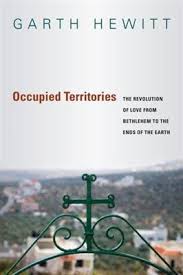 ccupied Territories: The Revolution of Love From Bethlehem to the Ends of the Earth Garth Hewitt (IVP) $16.00 This surely deserves a more substantive review, but for now you may know that Hewitt was a British evangelical folk/rock singer, doing thoughtful, engaging Christian music with friends of his such as the late Mark Heard and other socially conscience faith-based troubadours. (Has he ever played with Bruce Cockburn? I wonder.) Hewitt has worked for the Micah Trust traveling all over the world as a storyteller and advocate for just solutions to some of the world’s most grueling problems, and has written widely, and beautifully, including liturgical resources for peace and justice. I have a friend who knows him well, who worked on this manuscript a bit, and who assures me it is one of the best books in many a year!
ccupied Territories: The Revolution of Love From Bethlehem to the Ends of the Earth Garth Hewitt (IVP) $16.00 This surely deserves a more substantive review, but for now you may know that Hewitt was a British evangelical folk/rock singer, doing thoughtful, engaging Christian music with friends of his such as the late Mark Heard and other socially conscience faith-based troubadours. (Has he ever played with Bruce Cockburn? I wonder.) Hewitt has worked for the Micah Trust traveling all over the world as a storyteller and advocate for just solutions to some of the world’s most grueling problems, and has written widely, and beautifully, including liturgical resources for peace and justice. I have a friend who knows him well, who worked on this manuscript a bit, and who assures me it is one of the best books in many a year! 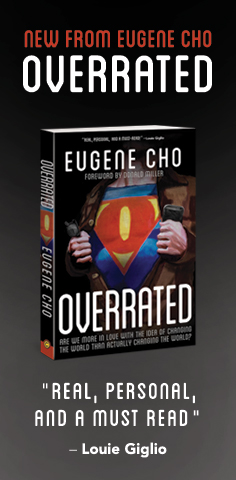 verrated: Are We More in Love With the Idea of Changing the World Than Actually Changing the World? Eugene Cho (Cook) $15.99 I could hardly put this down, and could hardly stop grinning, so glad to hear an evangelical leader say this mature, wise, honest stuff about the recent rhetoric about changing the world, transforming the culture, serving the poor, et cetera, et cetera. (And, might I add, honest about his own foibles and lifestyle, motivations and family life.) The subtitle — Are We More in Love With the Idea of Changing the World Than Actually Changing the World? — says it all, but you will want to be warned that the author (who not only is a pastor but the visionary founder of One Day’s Wages) does in fact, want to change the world. His organization works to alleviate extreme global poverty and Cho does want to recruit us to make choices in our own lives to be more giving and active, more Christ-centered and faithful in our service to others. There’s a cool foreword by Donald Miller, too, but listen to these blurbs on the back, with which I heartily concur:
verrated: Are We More in Love With the Idea of Changing the World Than Actually Changing the World? Eugene Cho (Cook) $15.99 I could hardly put this down, and could hardly stop grinning, so glad to hear an evangelical leader say this mature, wise, honest stuff about the recent rhetoric about changing the world, transforming the culture, serving the poor, et cetera, et cetera. (And, might I add, honest about his own foibles and lifestyle, motivations and family life.) The subtitle — Are We More in Love With the Idea of Changing the World Than Actually Changing the World? — says it all, but you will want to be warned that the author (who not only is a pastor but the visionary founder of One Day’s Wages) does in fact, want to change the world. His organization works to alleviate extreme global poverty and Cho does want to recruit us to make choices in our own lives to be more giving and active, more Christ-centered and faithful in our service to others. There’s a cool foreword by Donald Miller, too, but listen to these blurbs on the back, with which I heartily concur: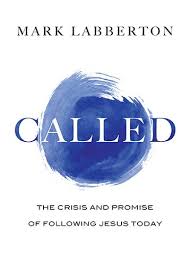
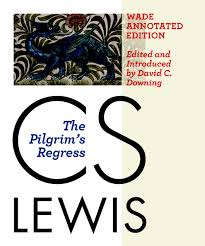 he Pilgrim’s Regress – Wade Annotated Edition C.S. Lewis; edited and introduced by David C. Downing (Eerdmans) $25.00 Wow! C.S. Lewis fans have been wishing for a volume like this for decades, and when word was out that this was in the making, it has been eagerly anticipated. It is a needed book, and will help enhance many a perplexed reader.
he Pilgrim’s Regress – Wade Annotated Edition C.S. Lewis; edited and introduced by David C. Downing (Eerdmans) $25.00 Wow! C.S. Lewis fans have been wishing for a volume like this for decades, and when word was out that this was in the making, it has been eagerly anticipated. It is a needed book, and will help enhance many a perplexed reader.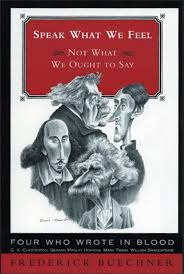 from Shakespeare’s
from Shakespeare’s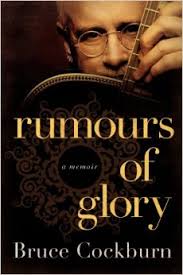
 honest about our own fears
honest about our own fears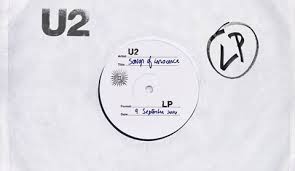 right, alongside Petra and Amy Grant (and, yes, all of Bruce
right, alongside Petra and Amy Grant (and, yes, all of Bruce ut I just can’t write about the new
ut I just can’t write about the new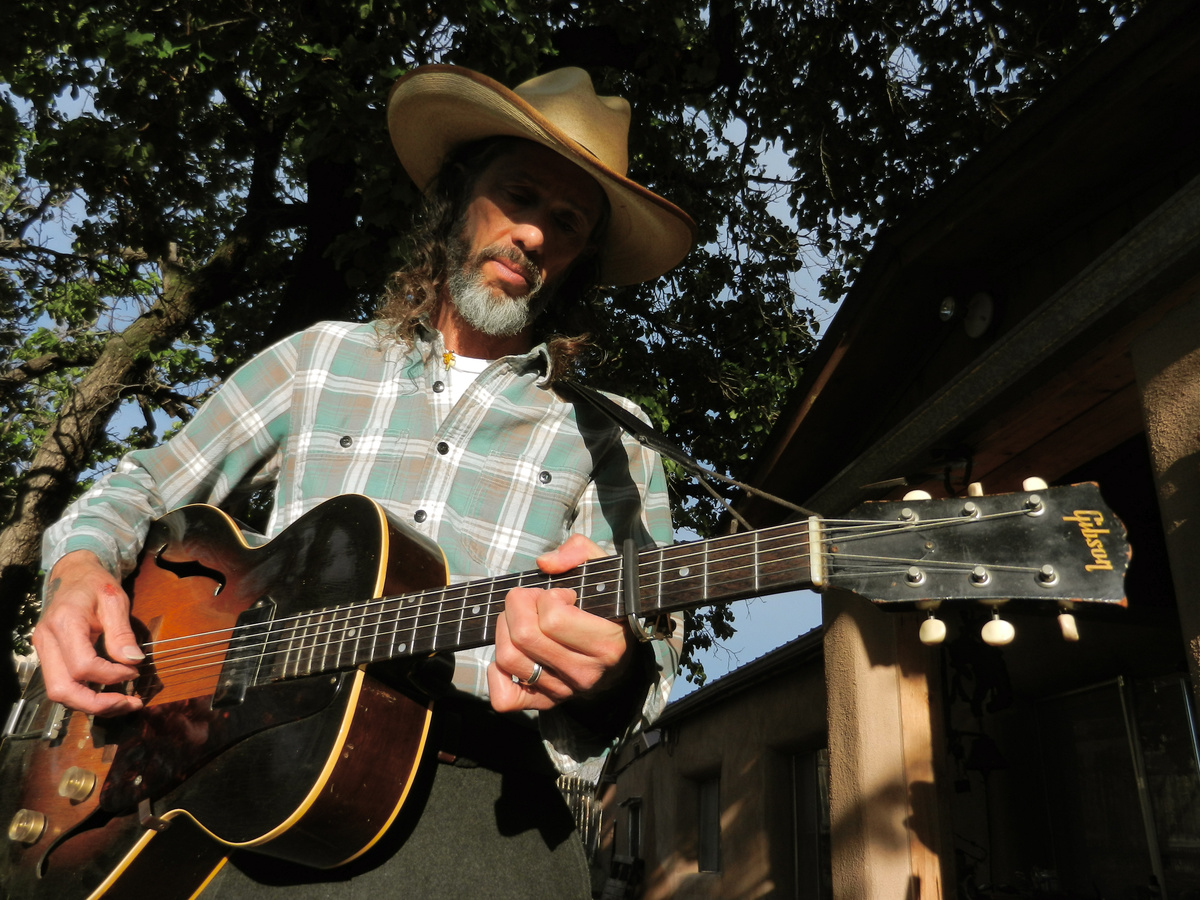 shout and the whispers,
shout and the whispers,
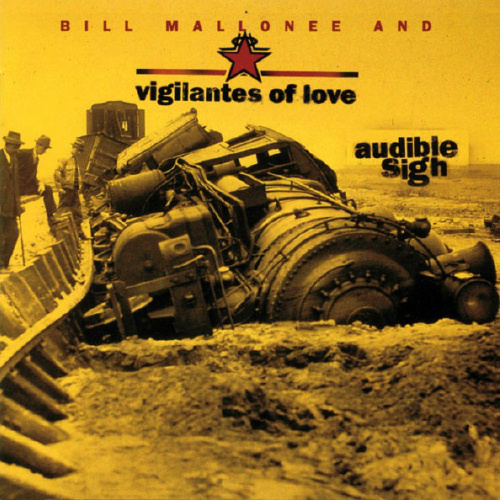 songs inspired by Jack Kerouac, from allusions to miners
songs inspired by Jack Kerouac, from allusions to miners nother slow, sad song achingly, but
nother slow, sad song achingly, but community, even if of misfits,
community, even if of misfits,
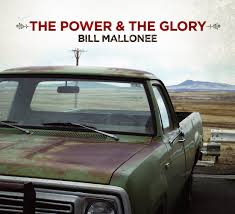
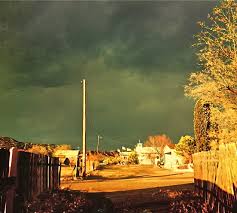
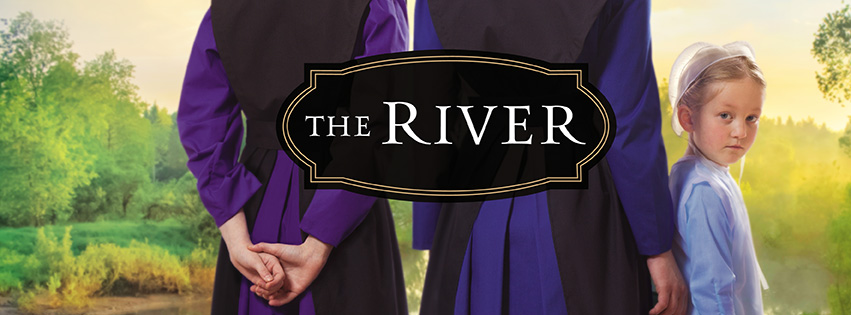
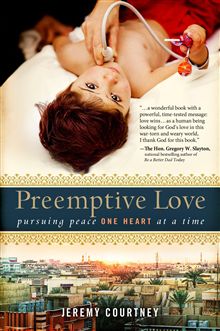 on-line price here at
on-line price here at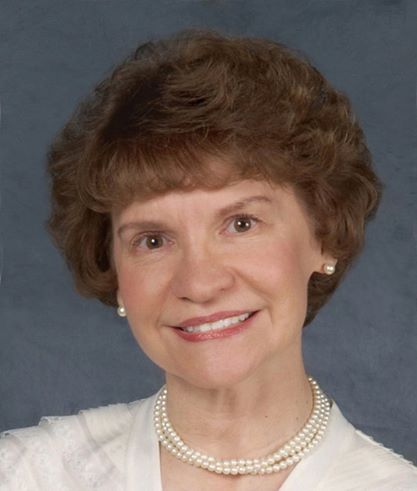 Times best-selling author Beverly Lewis, this Thursday (September 11,
Times best-selling author Beverly Lewis, this Thursday (September 11,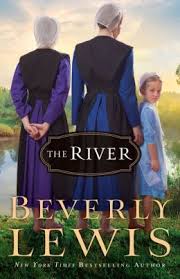 nd so, we can suggest that although Beverly Lewis is a genre
nd so, we can suggest that although Beverly Lewis is a genre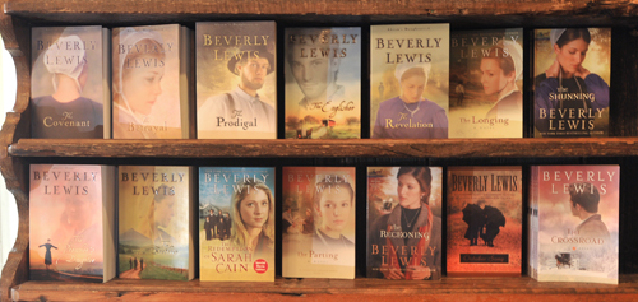
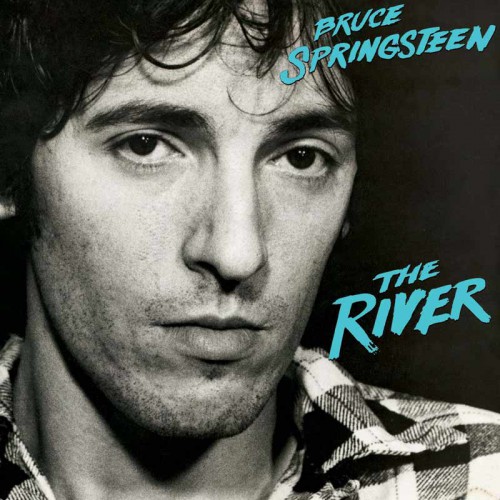 Wendell Berry and his novels that include a vivid sense of (rural) place, but
Wendell Berry and his novels that include a vivid sense of (rural) place, but exquisitely explores
exquisitely explores bad currents or particularly
bad currents or particularly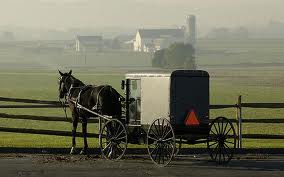 mish folks with their rejection of modern technologies and
mish folks with their rejection of modern technologies and ortland — can run the risk of
ortland — can run the risk of that treaties for
that treaties for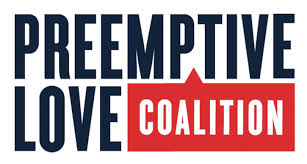 first time, real Jews, who showed themselves to
first time, real Jews, who showed themselves to Of the children his Preemptive Love Coalition has served and
Of the children his Preemptive Love Coalition has served and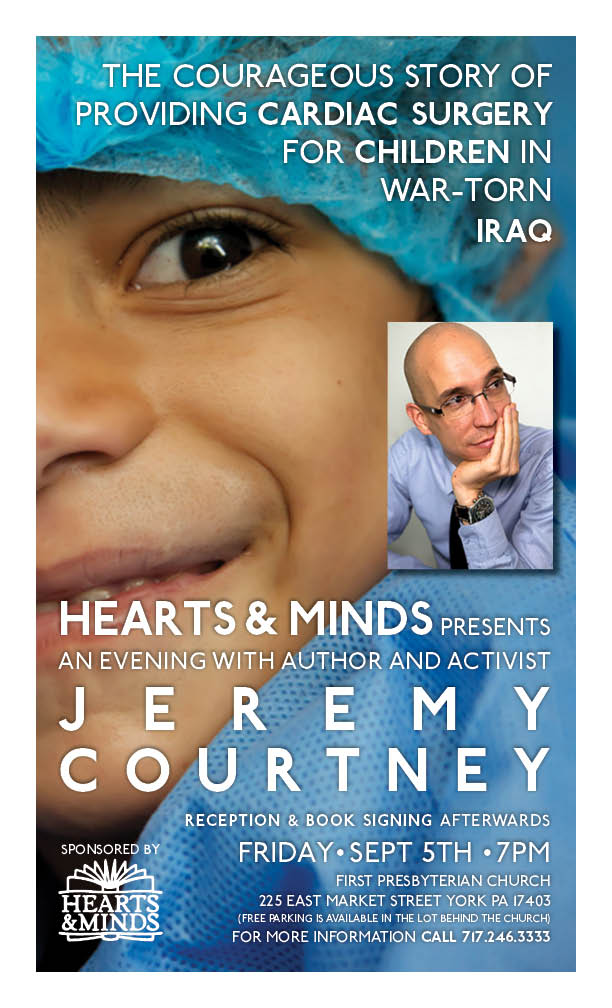 perhaps, a way into a new way of life for us all.
perhaps, a way into a new way of life for us all.